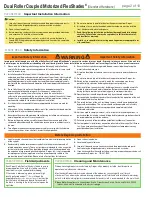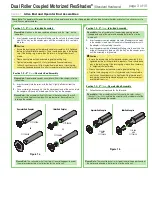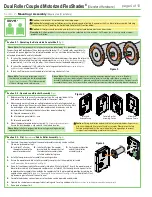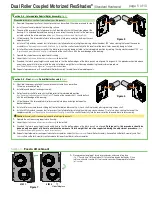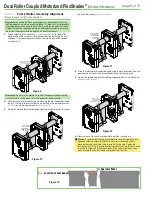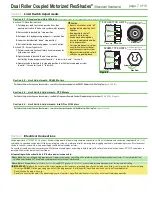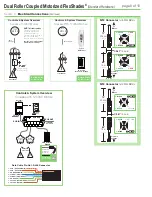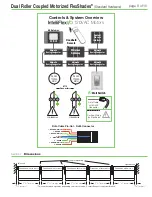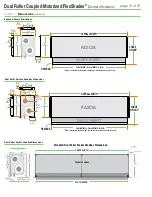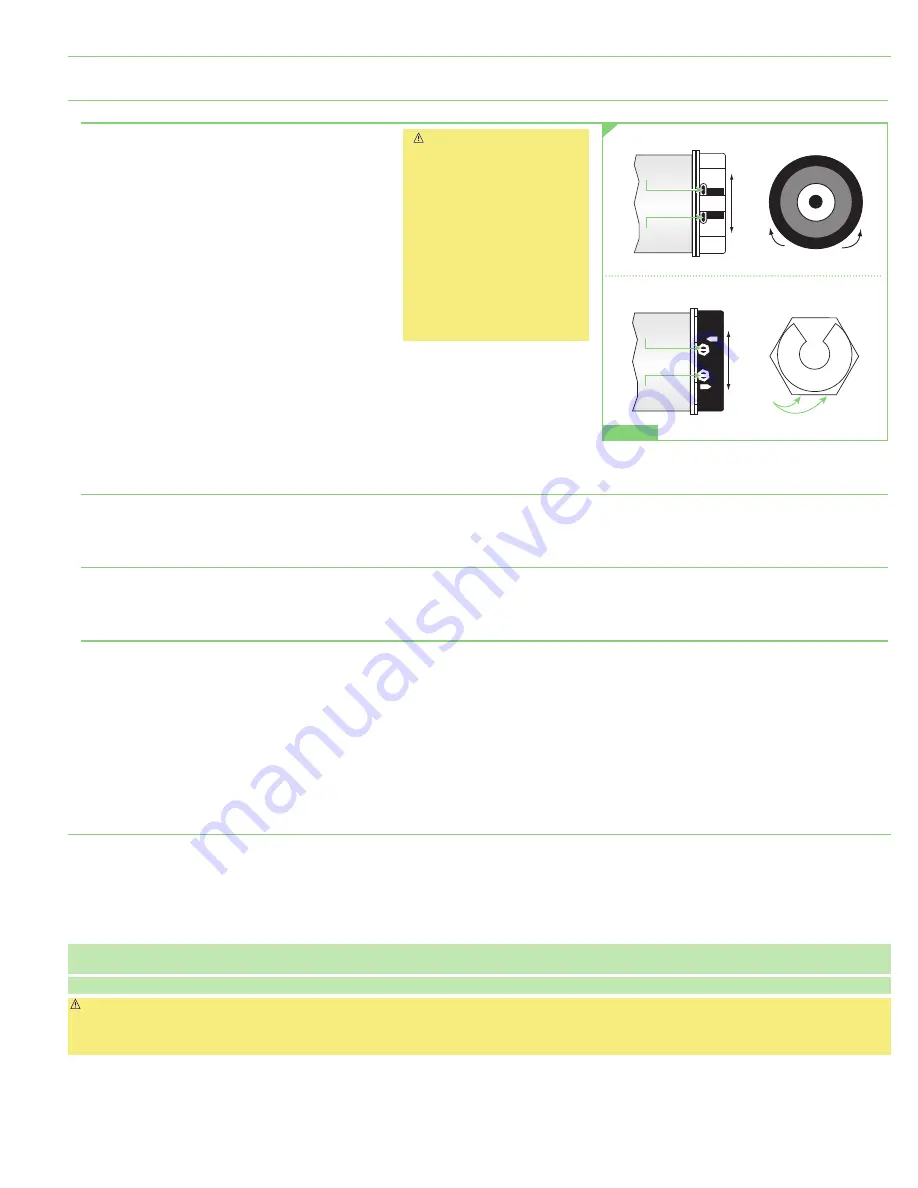
Section 5 -
Limit Switch Adjustments
Section 5.1 - Standard and Quiet Motors
(All procedures shown are for Standard Roll. Invert orientation for Reverse Roll)
Section 5.1.1- Push Button Limits
1.
Fully depress both limit switch push buttons, then
operate wall switch to make sure system works properly.
2.
Raise shade to desired “up” stop position.
3.
Set upper limit by depressing proper
(back)
push button.
4.
Lower shade to desired “down” stop position.
5.
Set lower limit by depressing proper
(front)
push button.
Section 5.1.2 - Screw-Type Limits
1.
Determine which direction of fabric travel corresponds
with arrows on motor.
2.
Operate shade to desired “down” stop position.
Set limit by turning proper socket toward “+” to lower limit, and “-” to raise it.
3.
Operate shade to desired “up” stopping position. Set limit by turning proper screw
toward “-” to raise limit, and “+” to lower it.
Section 5.2 - Limit Adjustments: RS485 Motors
For limit setting instructions on these motors, see instructions packaged with the RS485 Address
/
Limit Setting Tool
(part# C156.241)
.
Section 5.3 - Limit Switch Adjustments: RTS Motors
For limit setting instructions on these motors, see Radio Frequency Remote Control Programming Instructions
(FS_MO_RFRC_ProgInst)
.
Section 5.4 - Limit Switch Adjustments: IntelliFlex I/O Motors
For limit setting instructions on these motors, see instructions packaged with the Motor Limit Setting Tool
(part# C202.030)
.
Caution:
-
Be sure all switches are in “off”
position before adjusting limit
switches.
-
Be prepared to shut off
manually while testing.
-
Shade may be damaged by
running shade fabric down too
far to expose roller.
-
If using a group control system,
each limit switch must be set
prior to connecting to system.
-
Motor must be installed so limit
switches are pointed down.
Figure 8
GLASS SIDE
ROOM SIDE
Front
Back
Bottom View
Side View
GLASS SIDE
ROOM SIDE
Front
Back
Bottom View
Side View
Screws
+
+
Front
Back
Bottom View
Side View
GLASS SIDE
ROOM SIDE
Screws
+
+
Front
Back
Bottom View
Side View
GLASS SIDE
ROOM SIDE
PUSH BUTTON LIMITS
Standard right-hand
motor configuration shown
SCREW-TYPE LIMITS
Standard right-hand
motor configuration shown
Section 6 -
Electrical Connections
Shade operates on 110-120V, 60 Hz. current. Shade is shipped with internal wiring complete and control switch
(es)
fully boxed, and standardly supplied with a 6'
(1.8 m)
cable lead. Longer lead can be substituted by removing two screws in motor end of roller, removing lead, plugging new lead in, and replacing screws. Wire to connect
shade to switch
(es)
and switch
(es)
to power supply should be furnished by installer.
Connections should be made in accordance with attached wiring diagram, and wiring should comply with national and local electrical codes. DO NOT wire motors in
parallel without written permission from Draper.
All operating switches should be “off” before power is connected.
Please Note:
For low-voltage wiring requirements, Draper recommends consulting with a professional low-voltage electrical contractor. It is very important that
shielded and stranded CAT 5 cable be used to prevent any electrical interference.
Please Note:
A Draper Motor Test Cable
(Part# 503109)
and M12 Pigtail
(Part# C107.089.60)
are available for temporary power for testing and limit setting.
IMPORTANT:
To reduce the risk of electric shock, equipment that features a grounding type attachment plug has a third
(grounding)
pin on the attachment plug.
This plug will
ONLY
fit into a grounding type outlet. If the plug does not fit into the outlet, a qualified electrician must install the proper outlet.
Do not change the plug in any way.
Do not use an extension cord. If the power supply cord is too short, a qualified electrician must install an outlet near the drapery operator.
page 7 of 10
Dual Roller Coupled Motorized FlexShades
®
(Standard Hardware)


